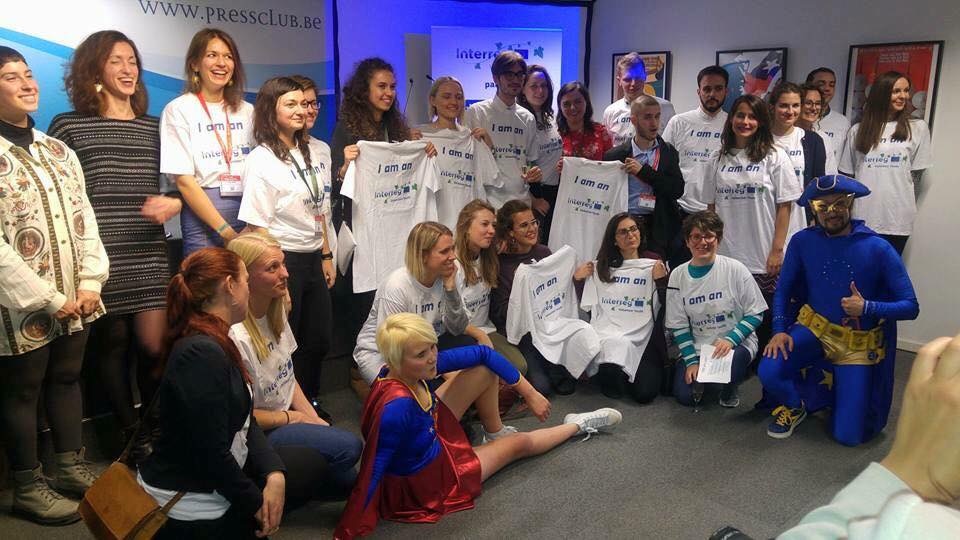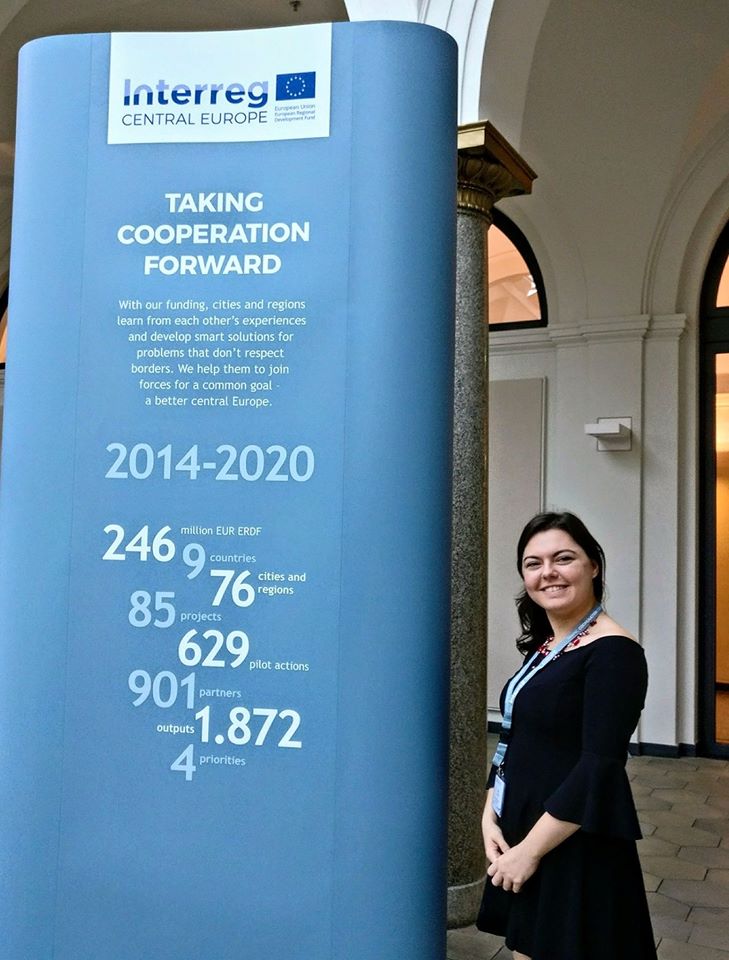
The volunteers of the European Solidarity Corps told us why.
Volunteering is Cool!
You can set out on a foreign adventure
Roberta Papp spent 12 months in Italy, where she, as a member of an international filming team, made interviews with locals and the volunteers arriving there.
"My project was a real intercultural experience. The association rented a large flat, where I met people from Latvia, Belgium, Sweden, Turkey, France, and even from Indonesia! Cuisine and music were a link between us. We learnt a lot of recipes from each other; also, the Belgian guy came by car, so we also made a road trip, listening to our own multiculti playlist. It also included Hungarian songs, which the others liked, too, but the all-time favourite was a Turkish song.
I've been in touch with the team ever since. Two days ago the Polish boy, who is a real meatatarian, told me that he'd made a Hungarian vegetable dish called 'lecsó', and how delicious it was. Recently, the Turkish guy came to Hungary and we gathered together of few other people, too, but I also went to Krakow to visit a former volunteer. Thanks to volunteering, there's a couch for me in many places where I can spend a few nights among friends.
I also went to an international drama group three times a week. Half of the group was Italian, and the other half was as diverse as you can imagine! We improvised, moreover, everybody was talking in their own languages, which was a very exciting experience. I heard stories and met people that nowhere else before. I was touched by the story of two refugee boys most, who had been in that group for four years but only told us about their experiences then. To see what life was like in a camp in Lybia, to flee, or to see your friends drown in the sea... it was deeply touching."

You can give and get
Alexandra Vinczi spent one year in Belgium as a volunteer, preparing young people for exchange programmes using non-formal educational methods.
"Volunteering has been an integral part of my life for years; I also wanted to join the programme of the European Solidarity Corps. That was because in Hungary, you also need to have a job besides volunteering, but the support given by the Corps allows you to do what you really want to do full time.
Non-formal education is my passion, so I looked for a project in which I could focus on that. It motivates me when I can give learning experience to others, when I can see them develop. We are engaged in young people's intercultural competency development in Belgium, and I've learnt a lot about the topic myself. We addressed the issues of stereotypes, discrimination, equal opportunities, and I see things differently, too. There's an analogy, coloured glasses. It says we are all born with transparent glasses on, but then our families and communities cause various colours, patterns and spots to appear on the lens. Bearing this in mind, I can better accept that everybody sees things differently.
Volunteering and non-formal learning has remained a part of my life. One of the greatest outcomes of this year has been the fact that one of the Belgian national offices asked me to hold training sessions, so I can continue to give in the youth field. As a volunteer, I assist the communication of Invisible University, and I'm also engaged in organisation development for some international organisations. I suggest that everybody should choose a project which is close to their interests and passions. It definitely worked for me!

You can try something new
Ferenc Gáspár 'Tádé' assisted the work of a CSO in Romania for 10 months.
"Originally, I studied engineering, and now I've joined a creative, human-centred project. The reason is that during university, I realised that it was not the right direction for me, but I'd been interested in writing and event organisation from quite a young age, and that was also why I liked this project. I wrote articles, edited a website, and I refreshed my old event organisation skills in a new environment. I was also interested in education, and as a volunteer, I even held German classes, so I had a chance to try it... and I realised that I wasn't good at it. At first, I was a little frightened of all the new things, but I thought 'Well, OK, let's do it, even if it's not the best in the end', but luckily, I always knew who to turn to for help.
Formerly, I'd heard it a lot that foreign volunteering can also count as work experience, but I didn't think of it like that; I was simply there, and I could try anything, because I always had my safety net. Of course, I had some responsibility, but not too much, so I was much more enthusiastic and I tried to do it really well so I can learn from it. Volunteering made me realise that I wanted to do marketing, and later, at the job interview I also realised that volunteering can be considered work experience.

You can develop in a thousand fields
Diána Zsoldos spent half a year in Austria as a volunteer, where she had communication duties.
“I developed a lot during the project. I instantly needed to manage tasks which would have presented a challenge even here at home, let alone in a foreign country. I found myself accommodation, I needed to go the dentist's, and, on top of all that, my laptop broke down on the first day. I felt rather bad about these challenges at that time, but I overcame all of them finally. In retrospect, I would start it all over again, because I've become much more independent and open. Here, at home, I would have given up much more easily, but it wasn't an option there - I would have felt like a loser to come home.
Since then, I've been able to stand up for myself, too. In Austria, everything works more smoothly, so they are more ready to help. For example, although the organisation left it up to me to find accommodation, they got me some extra financial support, just because I asked for it. It was also evident that I could easily and quickly check into the apartment; administrative affairs are much smoother there, too. I learnt that I could say if I needed something, that I could stand up for myself, and that I won't be criticised for that.
I was involved in a communications project, so from a professional point of view, this period wasn't wasted time for me. I started editing websites as a volunteer, and I was involved in the organisation of conferences for hundreds. My work involved a lot of travelling; it was exciting to organise something in an unknown city and venue. I went to Brussels, Berlin and Budapest, and I could even visit various ministries. I wouldn’t have had a chance to do that without the project.
Utolsó módosítás: 2020.07.27.












